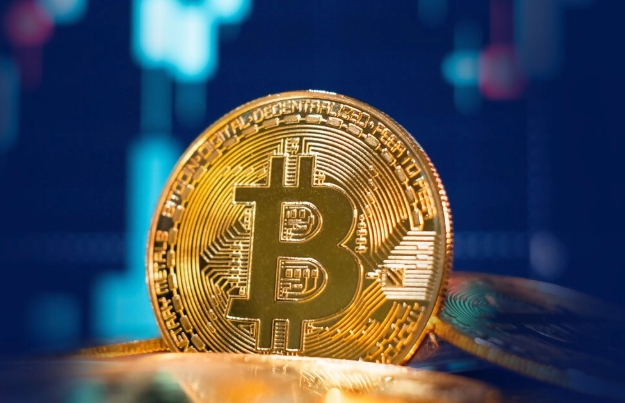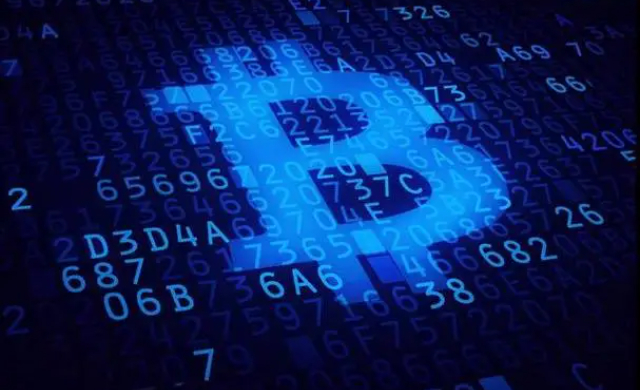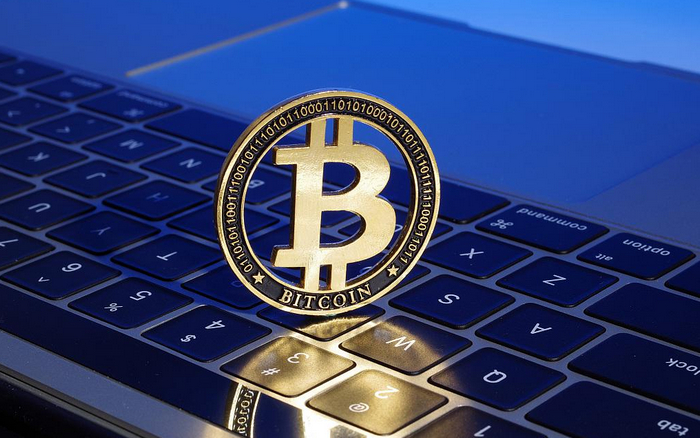 |
|
 |
|
 |
|
 |
|
 |
|
 |
|
 |
|
 |
|
 |
|
 |
|
 |
|
 |
|
 |
|
 |
|
 |
|
Cryptocurrency News Articles
The SEC's lawsuit against Ripple Labs is progressing slowly. Will it continue to appeal as regulatory thinking changes?
Feb 25, 2025 at 05:18 pm
The article analyzes the reasons for the slow progress of the SEC's lawsuit against Ripple Labs, and explores the possibility of appeal and settlement between the two parties under the change of regulatory thinking.
The origins of the SEC lawsuit against Ripple Labs
Causes of slow progress in litigation
Complex legal procedures : Such cases involving the fuzzy areas of financial innovation and legal definition require a lot of time to sort out the evidence and determine the application of the law. Both parties are extremely cautious in providing evidence and cross-examination. Every step from collecting documents to preparing expert witnesses is time-consuming and laborious. Moreover, the litigation process involves complex financial transaction data and technical details, and the court needs to fully understand these contents in order to make a fair judgment.
The case has great influence : Since the judgment of this case may set the tone for the supervision of the entire cryptocurrency industry, all parties attach great importance to it. Neither the SEC nor the Ripple Labs want to compromise easily, which has led to the two parties competing on every dispute point, causing the litigation process to continue to be delayed. At the same time, many stakeholders inside and outside the industry are also paying close attention, which has put a lot of pressure on the court and made them more cautious in their trials.
The manifestation of changes in regulatory thinking
Global regulatory attitudes differentiated : During the SEC's lawsuit against Ripple Labs, countries around the world showed obvious differentiation in regulatory attitudes towards cryptocurrencies. Some countries such as Japan and Singapore are actively exploring the compliance framework for cryptocurrencies in an attempt to find a balance between innovation and risk; while others have adopted a more conservative attitude and strengthened restrictions on cryptocurrencies. This global regulatory inconsistency has made the SEC consider more factors when formulating regulatory strategies.
Domestic regulatory reflection in the United States : With the development of the cryptocurrency market, there have also been reflections on the existing regulatory methods of SEC in the United States. Some believe that too strict SEC regulation may hinder the development of the United States in the field of cryptocurrency innovation and affect the competitiveness of U.S. fintech. At the same time, the rapid changes in the cryptocurrency industry have also made regulators aware of the need for regulatory ideas that are more flexible and adaptable to the development of the industry.
The impact of changes in regulatory thinking on litigation cases
Uncertainty of legal basis : Changes in regulatory thinking may lead to uncertainty of relevant legal basis. If regulators change their qualitative and regulatory approach to cryptocurrencies, the legal standards on which the SEC is based in litigation against Ripple Labs may also be challenged. This makes the court need to reexamine the legal issues involved in the case when making judgments, increasing the uncertainty of the judgment results.
Increased possibility of settlement : A shift in regulatory thinking may cause both parties to reassess the costs and benefits of litigation. For Ripple Labs, if the regulatory environment becomes more favorable, then continuing litigation may no longer be the best choice; for the SEC, it is also necessary to consider whether continuing litigation can achieve the expected regulatory effect under the new regulatory thinking. . In this case, the possibility of a settlement between the two parties increases.
The choices faced by Ripple Labs
Continue to appeal : From the perspective of Ripple Labs, there is a reasonableness to continue appealing. On the one hand, if he firmly believes that his business model is compliant and believes that the first-instance judgment is wrong, then appeal is a necessary means to safeguard his own rights and interests. On the other hand, continuing to appeal can also seek clearer legal definitions for the industry and prevent similar regulatory uncertainties from happening again. In addition, Ripple Labs has a certain influence in the industry, and continuing to appeal can also demonstrate its firm position to its partners and investors.
Considerations of reconciliation : Reconciliation also has many benefits. Settlement can avoid the high costs of long-term litigation, including legal costs, time costs and negative impacts on the company's business. At the same time, the settlement can enable Ripple Labs to resume normal operations faster, reducing the obstacles to its business development by regulatory uncertainty. In addition, in the context of a change in regulatory thinking, settlement may be an opportunity to establish a good relationship with regulators and is conducive to the company's future development.
SEC's position analysis
Motivation for continuing litigation : The SEC continues litigation may be due to the consideration of maintaining order in the securities market and protecting investors. Even if regulatory thinking changes, the SEC may still believe that Ripple Labs' behavior violates existing securities regulations and needs to be corrected through legal means. In addition, the SEC also needs to use this case to demonstrate its determination to regulate the cryptocurrency market and prevent similar unregistered securities issuance from happening again.
Possibility of settlement : As regulatory thinking changes, the SEC may also consider settlement. Settlement can avoid a long litigation process and save regulatory resources. At the same time, it can also reach some compromise with Ripple Labs under the new regulatory framework to achieve effective supervision of the cryptocurrency market. In addition, settlement can avoid risks caused by uncertainty in judgment results and maintain the authority of regulators.
Disclaimer:info@kdj.com
The information provided is not trading advice. kdj.com does not assume any responsibility for any investments made based on the information provided in this article. Cryptocurrencies are highly volatile and it is highly recommended that you invest with caution after thorough research!
If you believe that the content used on this website infringes your copyright, please contact us immediately (info@kdj.com) and we will delete it promptly.
-

- Binance launches an upward circuit breaker mechanism. What is the impact of the 72-hour price increase limit?
- Feb 25, 2025 at 06:02 pm
- Binance has launched an upward circuit breaker mechanism and a 72-hour increase limit, aiming to calm volatility in the cryptocurrency market. The article analyzes the impact of this mechanism on the cryptocurrency market from multiple aspects such as different participants, market liquidity, and market manipulation.
-

- Why did SBF change his political orientation and clearly
- Feb 25, 2025 at 05:41 pm
- SBF’s origins and early crypto-entrepreneurship experience explains the reasons for its early tendency toward the Democratic Party. Then we analyze changes in the crypto industry and political environment, and finally discuss the possible reasons why SBF has clarified the "shoulder" Trump from multiple aspects such as supervision and interests.
-

- SBF tweeted again about firing employees after two years. What’s the meaning behind it?
- Feb 25, 2025 at 05:34 pm
- SBF was once deeply involved in public opinion and legal difficulties due to FTX bankruptcy. Now, it has been a tweet about firing employees after two years. The profound meaning behind it is exploring.
-

- The SEC's lawsuit against Ripple Labs is progressing slowly. Will it continue to appeal as regulatory thinking changes?
- Feb 25, 2025 at 05:19 pm
- The article analyzes the reasons for the slow progress of the SEC's lawsuit against Ripple Labs, and explores the possibility of appeal and settlement between the two parties under the change of regulatory thinking.
-

- How does the Department of Government Efficiency (DOGE) affect the internal operations of the SEC?
- Feb 25, 2025 at 04:59 pm
- It focuses on the impact of the government efficiency department DOGE on the internal operation of the SEC, covering the background, past conflicts, actions and potential impacts of the two parties.
-

- Babylon Foundation airdrop is coming, how can the first phase of pledgers participate?
- Feb 25, 2025 at 04:32 pm
- The Babylon Foundation airdrop is aimed at groups such as the first-stage pledgers. Among them, the pledgers need to confirm their identity and register, pay attention to the differences from other groups, and prevent common problems and precautions.
-

- Nasdaq Futures Fall, Yen Strengthens, Why Bitcoin Falls Below $89,000
- Feb 25, 2025 at 04:24 pm
- Bitcoin fell below $89,000 in the early trading session on February 25, which was a combination of the decline in Nasdaq futures and the strengthening of the yen. Investors should pay attention to these factors through multiple channels.
-

- The yen has risen nearly 6% in six weeks. Will it trigger another Bitcoin crash?
- Feb 25, 2025 at 04:19 pm
- The yen rose nearly 6% in six weeks, attracting attention. Its fluctuations have a significant impact on the price of Bitcoin. Although Bitcoin currently has positive factors, there are still downside risks affected by the yen, so investments should be cautious.
-

- The Bank of Japan's interest rate hike remarks reappeared. Can Bitcoin escape the shadow of the July crash?
- Feb 25, 2025 at 04:16 pm
- Bitcoin fell more than $89,000 in the early trading on Tuesday, February 25, due to the strengthening of the yen and the Bank of Japan's interest rate hikes. Bitcoin is closely related to global financial markets, and it is doubtful whether it can get rid of the shadow of July's plunge this time.























































